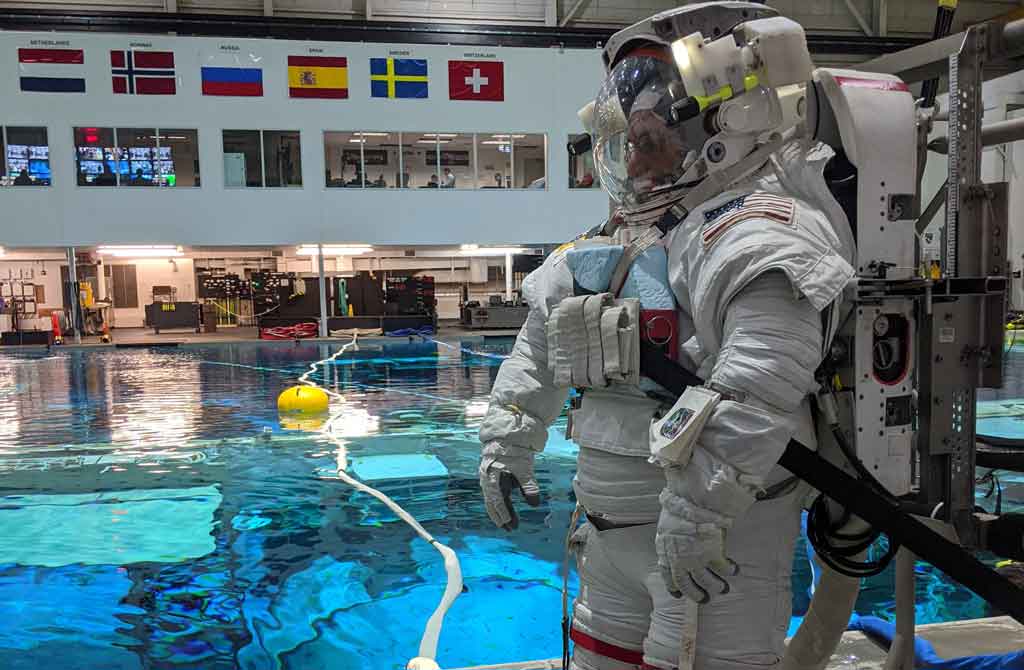- Sectors
- Aerospace & Defense
- Big science
- Biotechnology
- Fintech
- Work at ARQUIMEA
- Insights

ARQUIMEA and Intelligent Optical Systems have provided and demonstrated new sensing technology to NASA that for the first time enables the monitoring of gases inhaled and expelled by astronauts while inside spacesuits during crew training at the NBL (Neutral Buoyancy Laboratory at Sonny Carter Training Facility, Houston, Texas). We expect to publish the first set of the data collected with the participation of astronauts from the Artemis program soon.
The technology is known as the NIOGS system (Non-Invasive Optical Gas Sensing). The NIOGS system utilizes sensitive and flexible patches that are placed inside the spacesuit’s helmet and interrogated with optical fibers routed outside the suit thus taking advantage of the helmet’s transparent materials. The key elements in the NIOGS system are luminescent films whose emissions vary with the partial pressure of the target gas: CO2, oxygen, or water vapor. The luminescent films are a few hundred microns thick which enables placement inside the spacesuit helmet just in front of a crew member’s oronasal region without disturbing the gases flow or the astronaut’s vision.
The NIOGS system technology leverages work done by a team comprised of scientists from both ARQUIMEA and IOS in multiple projects for NASA and extends NASA’s capabilities for real time monitoring of CO2 inside the spacesuit during training.